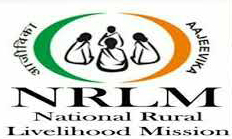Scheme extended for one year due to militancy
Excelsior Correspondent
JAMMU, Sept 19: The Union Cabinet today extended timelines for implementation of Special Package under Deendayal Antyodaya Yojana-National Rural Livelihoods Mission (DAY-NRLM) for Jammu and Kashmir for another year of 2018-19 and approved Rs 143.604 crore which will be required for implementation of the Scheme during current financial year.
Extension of the Scheme by another year in Jammu and Kashmir as a special case in view of disturbed conditions was taken by the Union Cabinet at its meeting held today under the chairmanship of Prime Minister Narendra Modi.
Official sources told the Excelsior that the Special Package approved for Jammu and Kashmir in May 2013 couldn’t be fully implemented in the State due to unavoidable reasons including disturbed conditions in the State.
“In view of this, the Jammu and Kashmir Government had requested the Centre to consider extension of earlier approved implementation schedule of the Special Package and continued funding of DAY-NRLM in the State on a demand driven basis without linking allocation with poverty ration during the extended period,” sources said, adding the Union Cabinet today approved extension of the Scheme, which will give boost to vulnerable rural families in Jammu and Kashmir.
Sources said the Union Cabinet also approved allocation of funds to the State under DAY-NRLM on a need basis for implementation of the Special Package without linking it with poverty ratio.
“There is no additional financial implication as the approval is to extend the timeline to cover two-thirds of the vulnerable households in the State within the originally approved financial outlay of Rs 755.32 crore. An amount of Rs 143.604 crore will be required for the period of one year during 2018-19 for implementation of the Scheme, which has been approved by the Union Cabinet today,” sources said.
Extension of the Scheme, according to sources, will help in covering all vulnerable rural households in the State estimated at two-third of the total number of households within a definite time frame.
“It will ensure mobilization of households under the auto inclusion category and households with at least one deprivation category listed in the Socio Economic Caste Census-2011,” sources said, adding that the extension of Scheme will also ensure coverage of all blocks in Jammu and Kashmir under DAY-NRLM and ensure social inclusion, social development, promotion of livelihoods leading to poverty alleviation in the State.
Immediately after the Union Cabinet approval to the extension of the Scheme, Union Minister of State in the Prime Minister’s Office (PMO), Dr Jitendra Singh tweeted: “Prime Minister Narendra Modi Government’s major boost for rural areas of Jammu and Kashmir . The Union Cabinet approves extension of timeline for implementation of the Special Package under Deendayal Antyodaya Yojana – National Rural Livelihoods Mission for J&K for another period of one year during 2018-19”.
Under the Scheme, at least one woman member from each identified rural poor households, is to be brought under the Self Help Group (SHG) network in a time bound manner. Special emphasis is particularly on vulnerable communities such as manual scavengers, victims of human trafficking, Particularly Vulnerable Tribal Groups (PVTGs), Persons with Disabilities (PwDs) and bonded labour. NRLM has devised special strategies to reach out to these communities and help them graduate out of poverty, sources said.
NRLM was set out with an agenda to cover 7 crore rural poor households, across 600 districts, 6000 blocks, 2.5 lakh Gram Panchayats and 6 lakh villages in the country through self-managed Self Help Groups (SHGs) and federated institutions and support them for livelihoods collectives in a period of 8-10 years.
In addition, the poor would be facilitated to achieve increased access to rights, entitlements and public services, diversified risk and better social indicators of empowerment. DAY-NRLM believes in harnessing the innate capabilities of the poor and complements them with capacities (information, knowledge, skills, tools, finance and collectivization) to participate in the growing economy of the country.


